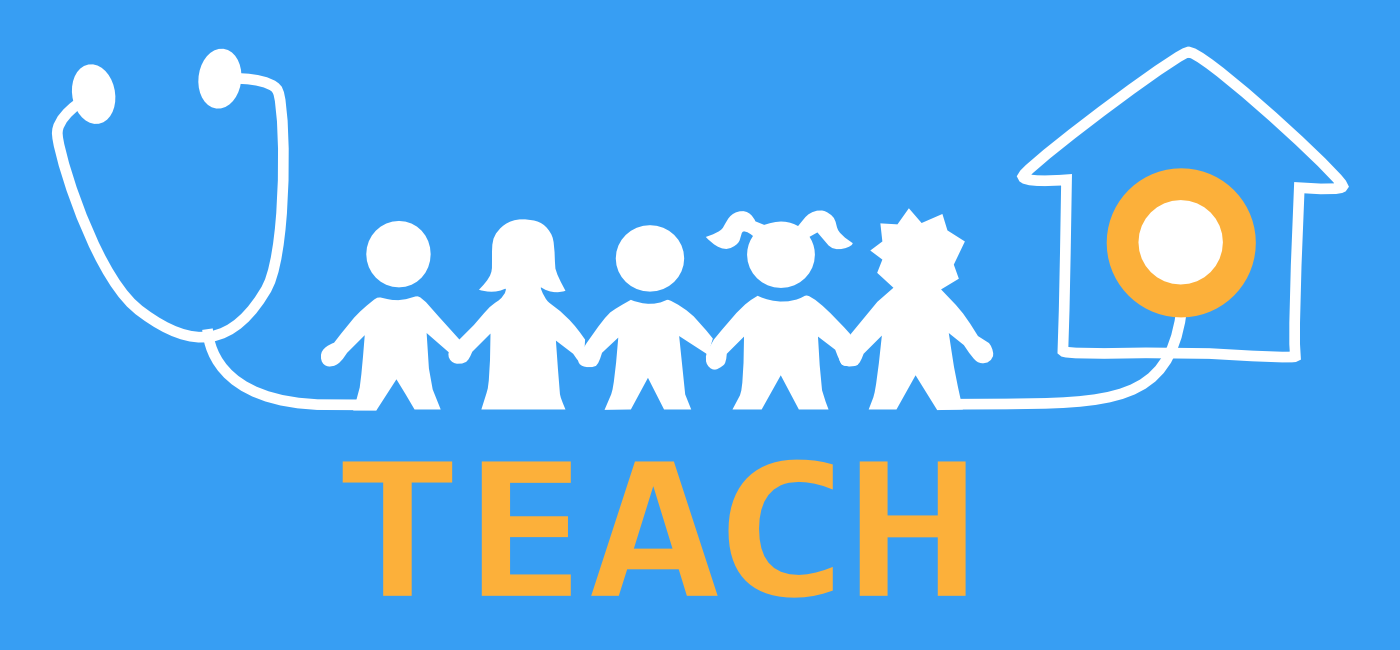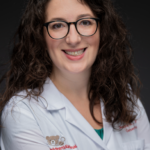One of the best things about being a pediatrician is using the skills we learn over the years to help children and families, by keeping them healthy with immunizations, or diagnosing and treating an ailment before it worsens, or recognizing when kids and teens need additional mental health support. But it is also sobering to recognize that the medical care we provide in our offices and hospitals – even if it is high quality care – accounts for only about 10% of a child’s health (1). Social and economic factors make up at least 40% of the modifiable factors that impact a person’s health, but we do not have a vaccine against poverty or an antibiotic to address housing insecurity. However, pediatricians and other child health professionals are well-situated to recognize and address the effects of the social and structural determinants of health. To ensure that the pediatricians of the future are well-equipped to do so, our teams at Children’s National across the Child Health Advocacy Institute and Pediatric Residency Program developed the Trainee Education in Advocacy and Child Health (TEACH) Curriculum.
The goal of the TEACH curriculum is to prepare pediatric residents to provide equitable care to children and families experiencing poverty, including screening for poverty and understanding the systemic issues at the root of poverty such as structural racism and other discriminatory policies. The learning objectives of the TEACH curriculum are largely based on the comprehensive U.S. Child Poverty Curriculum created by the Education Subcommittee of the Academic Pediatric Association (APA) Task Force on Child Poverty (2). We are grateful to the APA Task Force for creating these learning objectives that we have modified by expanding the policy and primary care objectives. Using this foundation, we developed new interactive modules and hands-on experiences grounded in adult learning principles. The TEACH curriculum was created, and is continually improved, with feedback from community members, residents, medical students, faculty, and experts in medical education. In particular, our close partnership with Total Family Care Coalition, a community-based parent support organization in Washington, DC, has been instrumental for ensuring that what we are teaching is relevant and respectful of our community; the organization’s leaders and staff have been involved from inception through publication of the TEACH Curriculum. The development of the curriculum was supported by a 5-year grant from the Health Resources and Services Administration.
What does the curriculum include?
The curriculum contains 6 components, and residents complete a portion each of their 3 years of training:
In addition to interactive modules, residents participate in a simulation activity on poverty, walk through the process of applying for benefits, complete a home visit activity, evaluate and improve their own clinical management of social determinants of health, and develop a policy write-up and receive feedback from expert faculty. For a taste of the curriculum, we invite you to watch a video that our team created to explain how poverty is defined in the United States.
What are the outcomes of the curriculum?
As of January 2024, 411 residents have completed the curriculum, and we are starting on our 6th year of providing the curriculum at Children’s National. We have shown improvements in learners’ knowledge and confidence with recognizing and addressing the impact of poverty along with self-reported greater preparedness and effectiveness in addressing social determinants of health. A qualitative analysis of debrief sessions with residents has shown an increase in residents’ empathy for, understanding of, and responsibility to address the effects of poverty in caring for patients. We have published outcomes of the curriculum with medical students (3) and pediatric residents (4) and we have shared the curriculum with nursing students and practicing physicians.
What’s next?
Poverty is ubiquitous in the United States, and current and future clinicians across the country would benefit from training in the root causes of poverty and ways to connect families to available resources. As such, the TEACH Curriculum was accepted to OPENPediatrics.org, a web-based repository of pediatric e-learning curricula, after a rigorous peer review process through Boston Children’s Hospital. Our hope is that trainees and clinicians anywhere can access the full curriculum online as individuals, and educators can embed the curriculum into their training programs. By developing the TEACH Curriculum through community partnerships and innovative learning methods, we hope that pediatricians and other child health professionals are more knowledgeable, competent, and empathetic as they advocate with families and the community to mitigate the effects of poverty.
Access the TEACH Curriculum
To access the TEACH curriculum you will first need to create a free OPENPediatrics account. Once you have created and verified your account you can access the course here.
Register for a Free Account on OPENPediatrics
- Website: https://learn.openpediatrics.org/learn/register
- Click “Create an Account” at bottom of page (or sign in if you are already a registered user)
- Fill out all required fields then click “Create an Account” at bottom of page
- You will receive a confirmation email (“Please confirm your registration request”) once your account is activated
- If confirmation email is not received within an hour, check spam folder first, then contact the OPENPediatrics helpdesk using the blue “Help” button at bottom left of homepage
- Confirm registration by clicking on link in email – you will then see “Registration Completed” and can sign in to the OPENPediatrics website
Enroll in Course
- Once you have created and verified your account, you can log-in and enroll in the course using the following link or search “TEACH Curriculum” in the search bar
- To access the course once enrolled: click “Start Learning Now”
References
1 Social Determinants of Health 101 for Health Care: Five Plus Five. National Academies of Medicine. https://nam.edu/social-determinants-of-health-101-for-health-care-five-plus-five/
2 Chamberlain LJ, Hanson ER, Klass P, et al. Childhood poverty and its effect on health and well-being: enhancing training for learners across the medical education continuum. Acad Pediatr. 2016;16(3 Suppl):S155-S162.
3 Weisz J, Magee P, Clarence I, Ottolini M, Falusi O. “TEACH”ing Medical Students to Address Child Poverty: A Multimodal Curriculum. Academic Pediatrics. 2022;22(1):168-170.
4 Falusi O, Weisz J, Clarence I, Lichtenstein C, Coddington D, Avent G, Beers L, Ottolini M. Leveraging E-Learning and Community Assets to “TEACH” Residents to Address Child Poverty. Academic Pediatrics. 2022;22(5):850-857.







